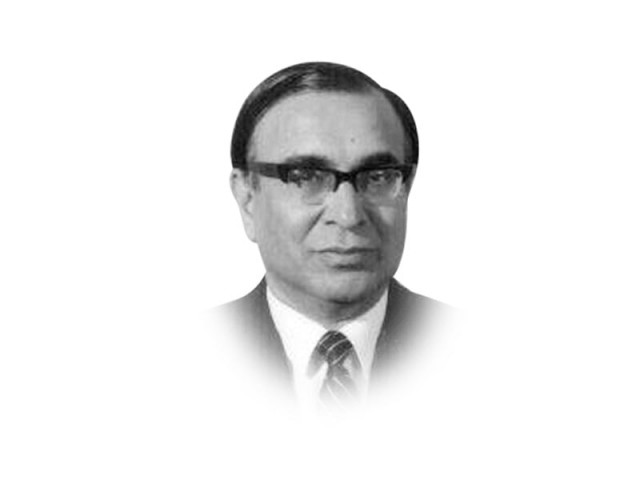A diversion to nowhere
Pakistan does not have unifying, centralising agency of internal ‘multinationals’ to knit India to Union government

A diversion to nowhere
Prominent amongst the bits that can be understood in the TV talk shows are references to the large number of provinces in Afghanistan and Turkey and the considerable increase in the number of federating states in the Indian Union. The references to Afghanistan and Turkey are irrelevant as, in their cases, the word is a poor translation of what is called an administrative district in India and Pakistan. References to India betray a conspicuous lack of understanding of the processes that led to the multiplication of states.
The first major reorganisation of states in India took place in 1956. The Congress had been seized of the issue since the closing years of World War I. Gandhi was an ardent supporter of linguistic re-demarcation and the development of India’s 22 or more languages. He demanded it publicly in October 1947. Nehru disagreed at first as his plan for modernisation, rooted in his own brand of socialism, envisaged central planning for larger inherited administrative units. It was the language-driven unrest in the south, especially in the huge province of Madras, that made him accept the creation of new states. Subsequently, India carved out more provinces and autonomous territories to meet other expediencies particularly on its periphery. Invariably, there was resort to the time-honoured British practice of establishing high powered commissions of eminent people to study and report on the matter. It has not been a linear process. The Sarkaria Commission of 1983, for instance, investigated, amongst other things, if decentralisation had unnecessarily weakened a strong centre that India needed. The centre asserted its dominance by invoking Article 356, the real nemesis of state governments, frequently till some moderation was introduced by the checks and balances prescribed in the landmark Bommai Judgment of the Indian Supreme Court.
Unlike India, where empirical factors such as the rise of powerful regional parties and old traditions shaped decisions, Pakistan has seen arbitrary reorganisation such as the infamous One Unit that made any subsequent consideration of new provinces a highly explosive issue. Balochistan and Sindh are the foremost examples where the proximity/kinship argument discussed in Ejaz Haider’s enlightening two-part analysis in this newspaper would, in today’s inflamed situation, lead to reactions likely to rip the federation apart. Awami National Party’s gratuitous proposal to create a pseudo-Pashtunistan in Balochistan is both ill-timed and ill-considered. The situation of Punjab does not have the same incendiary emotions but it has not been scientifically studied. The plausible idea of a Seraiki province has been hyped up only to create a rival dynasty that could curtail the Sharif brothers’ realm. This is the surest way of vitiating this idea, a clear case of mala fide intentions.
Pakistan does not have the unifying and centralising agency of big internal ‘multinationals’ that knit the burgeoning private sector in India to the Union government and through it to its ‘neo-liberal’ international partners. Though the imperfect Indian economic model has sharpened disparities amongst the federating states, it does dilute centre-state polarisation.
Pakistan’s best option is for the government to abandon its diversionary tactics and focus on the restoration of law and order and the revival of the economy. It should be much more deliberate on the reorganisation of existing provinces and appoint a commission of public representatives and experts under a judge of impeccable credentials to formulate viable recommendations to satisfy local aspirations and make governance vastly more efficient, honest and creative. This is no time to create new Frankensteins that the government has hardly any capacity to flirt with.
Published in The Express Tribune, August 22nd, 2011.















COMMENTS
Comments are moderated and generally will be posted if they are on-topic and not abusive.
For more information, please see our Comments FAQ